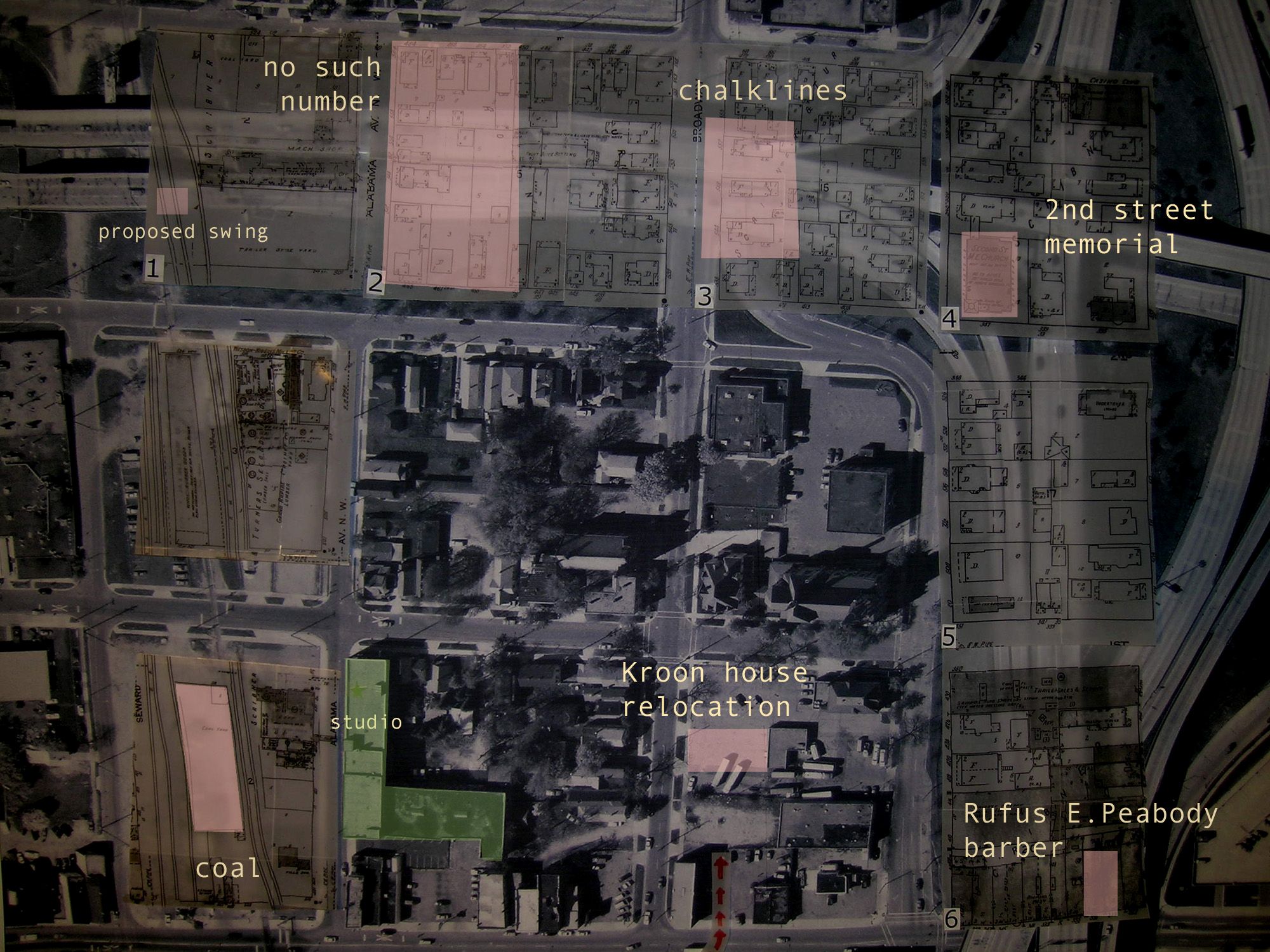Fold Down
2003
![]()
![]()
![]()
![]()
![]()
![]()
![]()
![]()
![]()
![]()
![]()
![]()
![]()
![]()
Displacement
October 25, 2003

Displacement is a display of projects that address the near vicinity of the Alabama street studio site: an area that experienced major displacements with the sucessive construction of 2 major highways. The studio projects were done after completing the historical and spatial research documented in the placement project.
In broad terms, the history of the world is a history of one people's displacement after another. Through DNA strands and linked pottery pieces, for instance, we can chart the travels of ancient tribal groups from India to New Guinea or Samoa to Australia; through artifacts and foundations the past is revealed in slow, transient motion. Lack of resources, overpopulation, or the pressure of warring peoples were, in previous generations, the primary instigators of displacement. In truth, it is a common denominator in countries all over the world--in America alone, we have witnessed the uprooting and migration of Native Americans, African Americans, the middle-class, and the rural poor among others. Displacement can be forced or chosen, fought against or embraced, and it exists in contemporary America as a subtle force, a result of the overwhelming power of technology and mechanics.
In the late 1950's, a large section of the West Side of Grand Rapids, Michigan, the home of Civic Studio, was displaced by the construction of the Highways 196 and 131. Entire blocks of homes, businesses, and churches were demolished in the name of "progress" and a more efficient, Modern city. The projects collected in Displacement aim to engage the themes of change, loss, and imagined possibilities. And as you can see, the majority of images are the documentation of projects conducted throughout the past couple of weeks. Blending historical research and visual creativity the members of the civic studio have developed work that is both sensitive to the existing West Side neighborhood and cognizant of what existed before. Nina Franz's "Coal" calls attention to the replacement of older modes of technology, transportation, and energy production through a contemporary method of advertising. "Untitled (No Such Number)", a batch of letters that Meagan Luhrs sent to homes and addresses that no longer exist, attempts to subvert existing governmental structures (the Federal Postal Service), thought ultimately fails in that all of the letters were returned. Workd by Lindsey Brashler and Matt Winne reference the loss of a noted West Side business location and reinvent history through the creation of Peabody's Barbershop. Michelle Vondiziano, in "Chalk Construction", takes a subtle, delicate approach to the absence of previously existing homes in the West Side neighborhood by reconstruction their floor-plans in orange chalk. Ryan Dittmer and Beth Fowler have delved deeper into the reserach about their block and display their findings here. Imagining possibilities for the landscape surrounding the expressway, Paul Wittenbraker created images of proposed swings.
Each project displayed in "Displacement" is dependent on and created from the research of the civic studio participants that is specifically documented in the project "Placements".